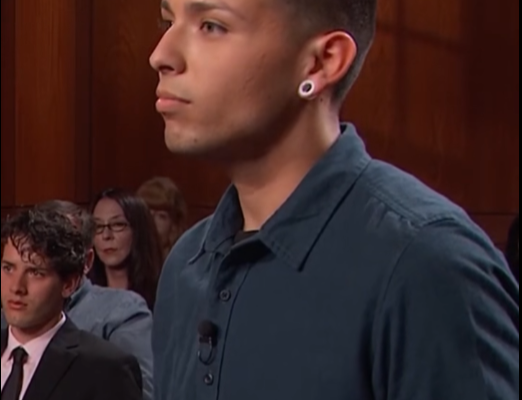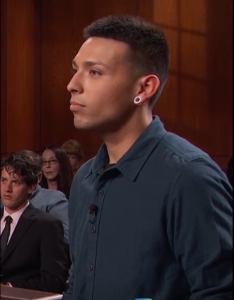Judge Judy Skeptical of Defendant’s Intentions and Excuses in Debt Dispute
In a tense courtroom showdown, Judge Judy wasted no time in expressing her disbelief regarding the defendant’s claims that he intended to repay Breanna, as well as his excuse for being late to court.
The case, centered around a debt dispute, revealed a frustrating pattern of excuses and a lack of accountability, leaving Judge Judy to question the defendant’s integrity and sincerity.
Breanna, the plaintiff, presented her case, claiming that the defendant, whom she had lent money to, had failed to repay her despite several assurances.
According to Breanna, she had been generous in helping the defendant during a difficult time, believing that he would fulfill his promise to pay her back once he was financially able.
However, months had passed, and not only had the defendant failed to repay the loan, but he had also failed to maintain open communication with Breanna, further escalating her frustration.
The defendant, in his defense, attempted to explain the situation by offering excuses for why he had not repaid the debt. He claimed that he had been struggling financially and had fallen on hard times, but he assured the court that he intended to repay Breanna in the near future.
However, Judge Judy quickly dismissed this explanation, suggesting that the defendant’s lack of action and continual promises without delivery indicated that he had no real intention of repaying the money.
Judge Judy’s skepticism grew when the defendant tried to offer an excuse for his tardiness to court. According to him, he had been caught in traffic, which caused him to arrive late.
Judge Judy, unimpressed by this excuse, sharply pointed out that it was not a valid reason for his failure to show up on time. She emphasized the importance of punctuality in the courtroom and made it clear that excuses would not be tolerated.
Throughout the hearing, Judge Judy’s sharp questioning and no-nonsense approach left the defendant struggling to maintain his composure. She continually pressed him for clear answers, pointing out inconsistencies in his statements and questioning his motives.
Her quick wit and keen judgment made it evident that she believed the defendant was simply trying to avoid responsibility for his actions.
The defendant’s repeated attempts to justify his failure to repay the loan and his tardiness to court only served to further fuel Judge Judy’s disbelief. She suggested that his behavior was indicative of someone who was either unwilling or unable to take responsibility for their commitments.
Breanna, on the other hand, stood firm in her position, expressing her frustration with the defendant’s lack of follow-through and his failure to honor their agreement.
In the end, Judge Judy’s skepticism of the defendant’s excuses left no room for doubt about her opinion on the case. She made it clear that she did not believe the defendant had any real intention of repaying Breanna and that his excuses for his tardiness were just another attempt to avoid accountability.
Judge Judy’s decision in this case will likely serve as a warning to others about the importance of keeping promises and taking responsibility for one’s actions, especially when it comes to financial obligations.
As the case concluded, the defendant was left with the consequences of his actions, and Judge Judy’s ruling will serve as a reminder that excuses and delays are not enough to avoid responsibility in the courtroom.
Breanna, on the other hand, may finally see some justice in her pursuit of the money she is owed, though it remains to be seen whether the defendant will take any meaningful steps to repay her in the future.




